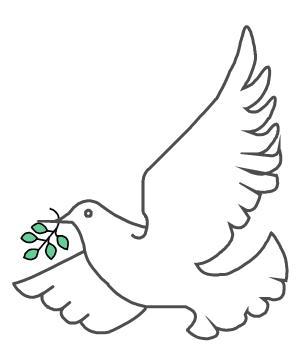|
Viewpoint from Les Cockrill 5/2/10
Les Cockrill
Yarmouth Quakers
“Be patterns, be examples in all countries, places, islands, nations, wherever you come, that your carriage and life may preach among all sorts of people, and to them; then you will come to walk cheerfully over the world, answering that of God in every one.” [George Fox, 1656]
Quakers have always tried to be aware of the Spirit of God at work in the activities of daily life and in the Meetings for Worship which  are central to our shared spirituality and our shared witness. For some Quakers the visible evidence of what they believe and how they interpret what they believe lies in what they do. In some instances this may be things on which we are personally called to take action but recently we have been giving attention to our ministry through money, in other words the things we help to finance. This consideration has been particularly important when the recession is forcing us all to prioritise our giving and, maybe, seek to squeeze our finances in order to combat falling income to so many causes.
Peacemaking has always been a priority for Quakers who find all war and preparation for war to be contrary to the will of God as discerned in our Meetings and demonstrated by the life of Jesus. The involvement of British Quakers in the former Yugoslavia began as soon as the first ceasefire. Quakers saw the need to meet people who had opposed armed conflict and to offer support and education for work with internally displaced people, conscientious objectors and people wanting to learn about resolving conflict through non-violent means. ‘Dealing with the Past’ is a unique programme helping young people in Serbia, Bosnia-Herzegovina and Croatia to speak openly about the traumatic difficulties of the past and to work together for a better future. In this they have been helped by ‘Truth in Translation’ a South African performance group br  ought in to encourage dialogue among divided communities.
In Uganda British Quakers continue to support and assist ‘Empowering Hands’, a women’s kidnap survivor group, enabling it to become a stable and efficient community based organization.
In North-East India Quakers were invited to initiate and facilitate a ‘Forum for Naga Reconciliation’. Naga has been an area in which armed conflict between rival groups has caused terror, grief and poverty to be perpetuated over generations. Little by little distrust, conflict and hostility are being replaced by dialogue and shared cultural and financial interests. This is a very long term commitment.
How does a small organisation, like Quakers, with no political power and a reputation for silence play a major role in developing global policy on major issues, you may ask? Child soldiers, landmines, access to medicines and women in prison are just some of the issues where the Quaker United Nations Office in Geneva, a small but resolute organisation financed by Quakers the world over, has played a role in making positive changes on an international scale. QUNO currently supports what is called the Geneva Declaration on Armed Violence and Development. They have a unique role as the only non-governmental organisation accorded ‘a place at the table’ with the core governments who are driving the processes.
|
|
|
|